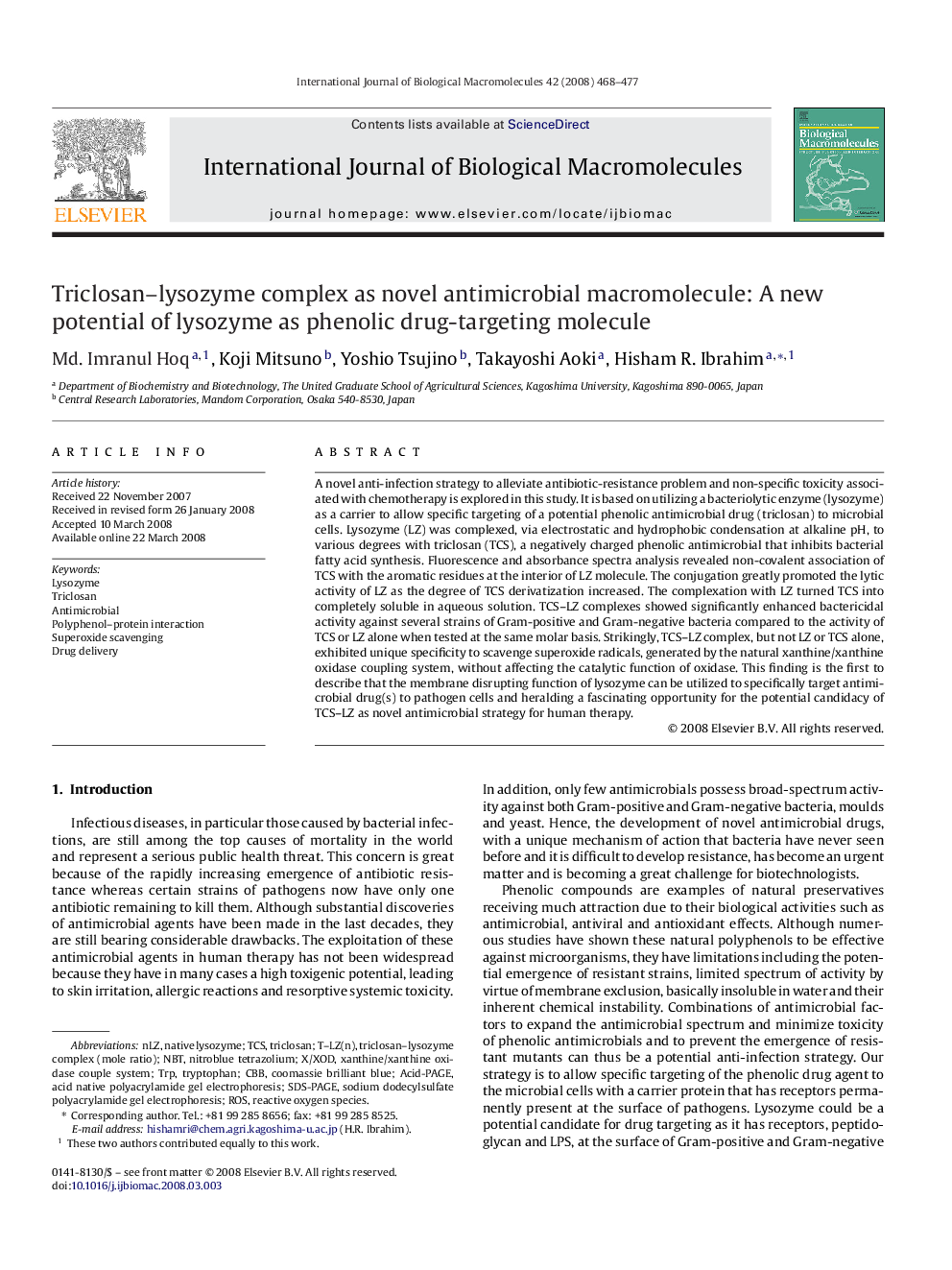| Article ID | Journal | Published Year | Pages | File Type |
|---|---|---|---|---|
| 1988182 | International Journal of Biological Macromolecules | 2008 | 10 Pages |
A novel anti-infection strategy to alleviate antibiotic-resistance problem and non-specific toxicity associated with chemotherapy is explored in this study. It is based on utilizing a bacteriolytic enzyme (lysozyme) as a carrier to allow specific targeting of a potential phenolic antimicrobial drug (triclosan) to microbial cells. Lysozyme (LZ) was complexed, via electrostatic and hydrophobic condensation at alkaline pH, to various degrees with triclosan (TCS), a negatively charged phenolic antimicrobial that inhibits bacterial fatty acid synthesis. Fluorescence and absorbance spectra analysis revealed non-covalent association of TCS with the aromatic residues at the interior of LZ molecule. The conjugation greatly promoted the lytic activity of LZ as the degree of TCS derivatization increased. The complexation with LZ turned TCS into completely soluble in aqueous solution. TCS–LZ complexes showed significantly enhanced bactericidal activity against several strains of Gram-positive and Gram-negative bacteria compared to the activity of TCS or LZ alone when tested at the same molar basis. Strikingly, TCS–LZ complex, but not LZ or TCS alone, exhibited unique specificity to scavenge superoxide radicals, generated by the natural xanthine/xanthine oxidase coupling system, without affecting the catalytic function of oxidase. This finding is the first to describe that the membrane disrupting function of lysozyme can be utilized to specifically target antimicrobial drug(s) to pathogen cells and heralding a fascinating opportunity for the potential candidacy of TCS–LZ as novel antimicrobial strategy for human therapy.
